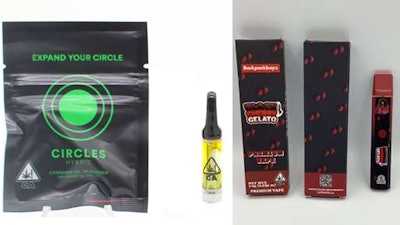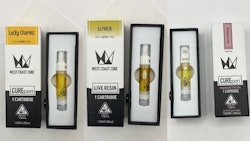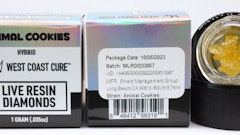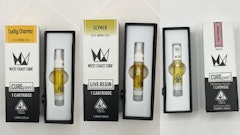
The California Department of Cannabis Control (DCC) issued a trio of mandatory product recalls July 17 for vape products manufactured by KUSH (Kinder Understanding Sensitive Healing) Collective.
The recalled products include a Backpackboyz integrated vaporizer and two Circles Cannabis vape cartridges.
According to the DCC, the department cited the presence of chlorfenapyr, a Category I pesticide, for each product recall. Chlorfenapyr is not registered for food use in California and, as a Category I pesticide, is banned for use in cannabis cultivation, according to the state’s Department of Pesticide Regulation (CDPR).
“Chlorfenapyr intoxication is characterized by a high fever, rhabdomyolysis and neurologic symptoms that progressively worsen until death,” according to multiple reports cited by the National Institute of Health (NIH). Rhabdomyolysis is a life-threatening condition where muscles break down, according to the Cleveland Clinic.
The Environmental Protection Agency requires Category I pesticides to have a warning label with the words DANGER and POISON printed in red with a skull and crossbones symbol prominently displayed on the front panel of the package, Cannabis Business Times previously reported.
These mandatory recalls add to a recent string of products the department determined were contaminated with the deadly pesticide following a June 14 article published in the Los Angeles Times, “The Dirty Secret of California’s Legal Weed,” that was written in conjunction with Weed Week’s Alex Halperin.
Twenty-five of 42 cannabis products the news outlets purchased from licensed dispensaries and tested at private labs showed pesticide concentrations either above state-allowed levels or at levels that exceed federal standards, according to the investigative article.
RELATED: Cannabis Products Contaminated With Deadly Pesticide Recalled From California Market
Since that article was published, the DCC has issued mandatory recalls for nine products it determined were contaminated with chlorfenapyr.
The DCC is at the beginning of an investigatory process for the recently recalled products, and “the department cannot provide any additional information,” DCC Information Officer Moorea Warren told CBT earlier this month.
The KUSH Collective manufactured products subject to the July 17 mandatory recalls include:
- A single Backpackboyz premium vape integrated vaporizer sold on or after Sept. 18, 2023, at 20 dispensary locations in seven California counties:
- Black Cherry Gelato: 1-gram integrated vaporizer (Batch No.: 091323BC | UID No.: 1A40603000172B5000000607)
- Two Circles Cannabis oil vaporizer vape cartridges, the first sold on or after March 12, 2024, and the latter sold on or after May 28, 2028, in 12 dispensary locations in nine counties:
- Gelatti: 1-gram vape cartridge (Batch No.: 030824GE | UID No.: 1A40603000172B5000000882)
- Pink Runtz: 1-gram vape cartridge (Batch No.: 240521PR | UID No.: 1A40603000172B5000000979)
The DCC urged consumers who purchased the recalled products to check their packaging for the UID and batch numbers and, if they match, to dispose of the products or return them to their retailer for proper disposal.
As of July 1, 2024, cannabis vape cartridges and cannabis integrated vaporizers must be properly disposed of as hazardous waste at a household hazardous waste facility or another approved facility under California law, according to the DCC.
“If you are experiencing symptoms or any adverse reactions, contact your physician immediately,” the department noted in the recall statement.
When the DCC issued mandatory recalls on July 2 for five products manufactured by Shield Management Group LLC, doing business as West Coast Cure (WCC), WCC issued a press release that day calling for improved oversight of California’s licensed cannabis testing laboratories while also standing behind its own compliance practices.
“Like all manufacturers in the industry, we have had batches of products fail compliance testing,” the company stated. “In every single one of those instances, we destroyed the products and sent recordings of the destructions to the California Department of Cannabis Control. We have also had source material fail quality control testing that we do prior to packaging. In those circumstances, we returned that material to the vendors.”


























